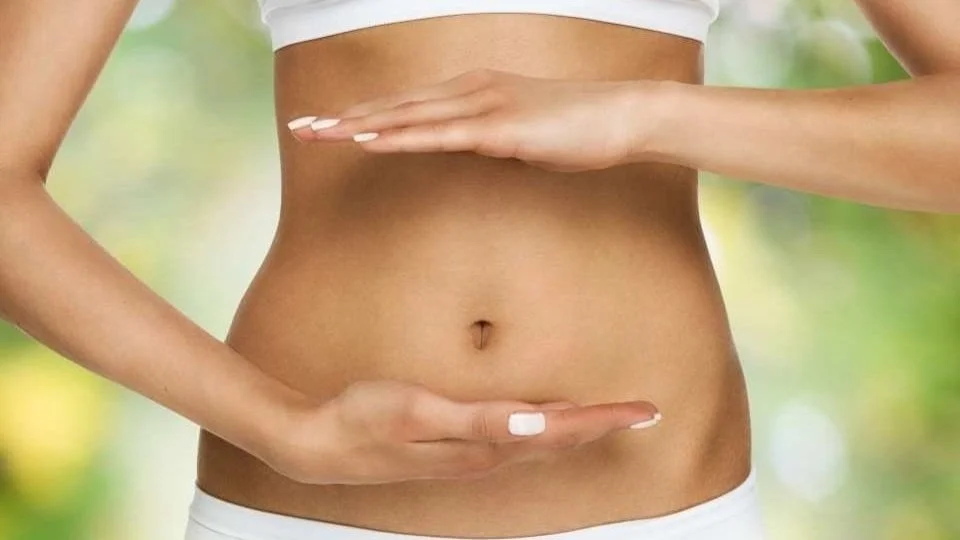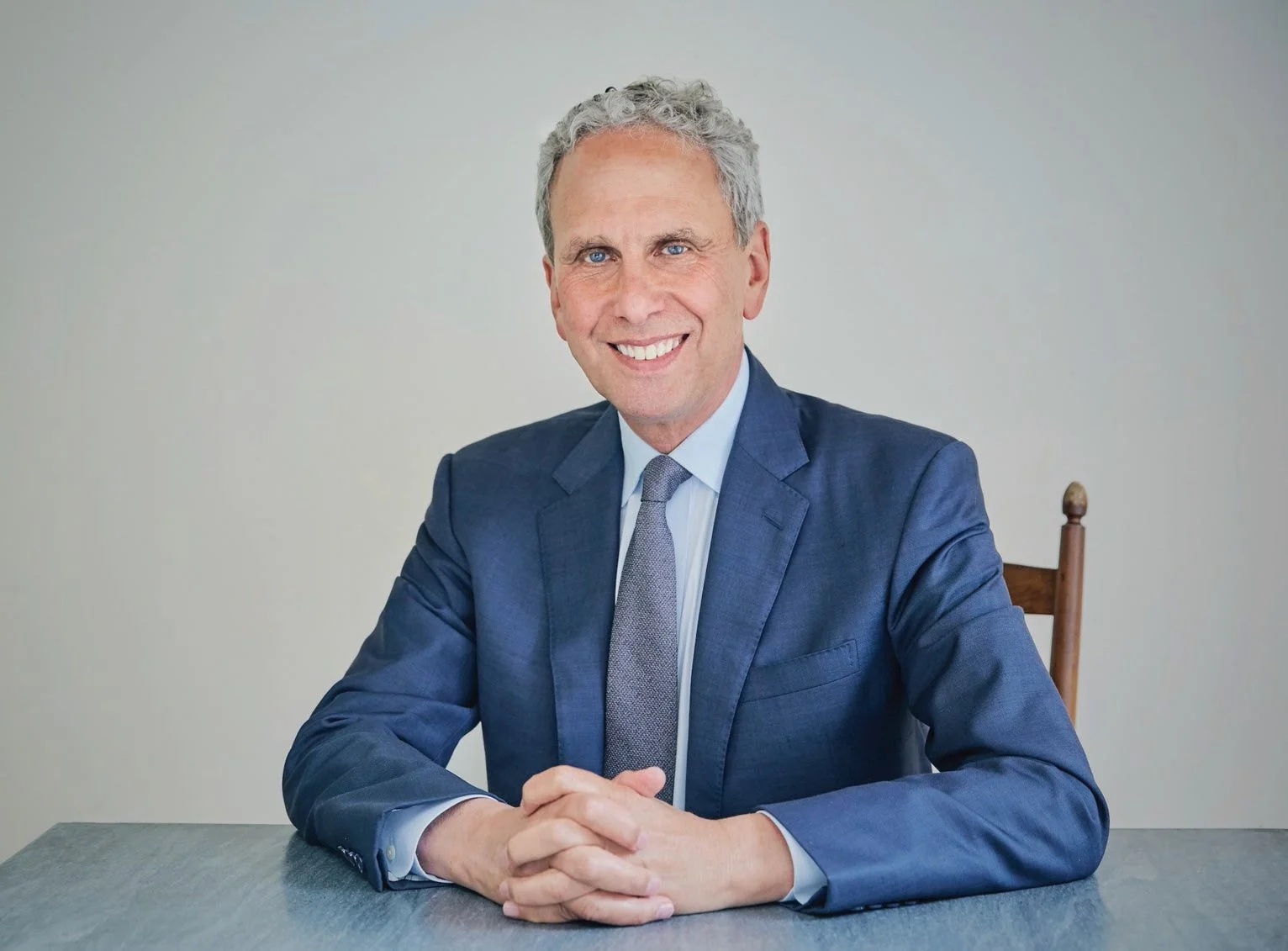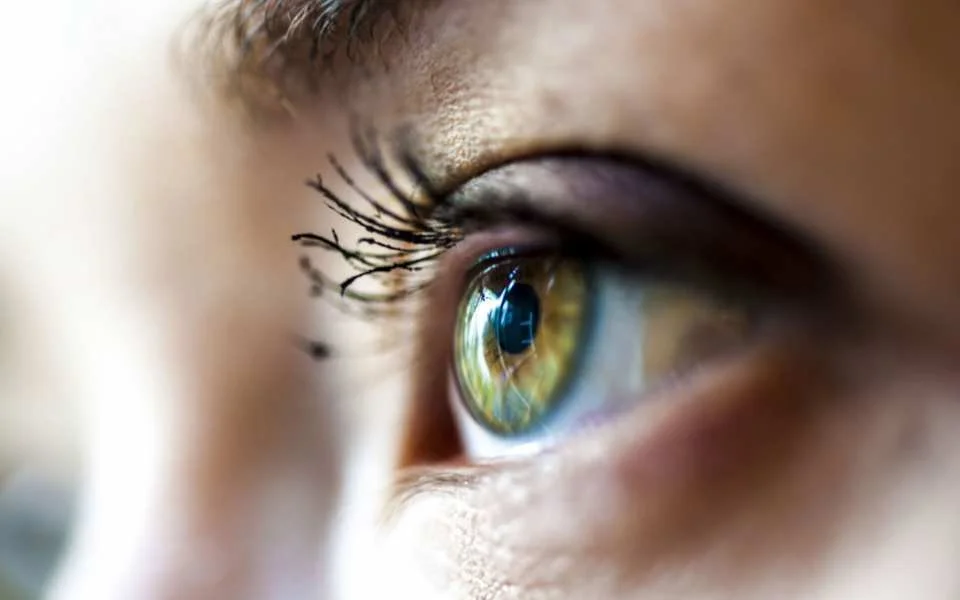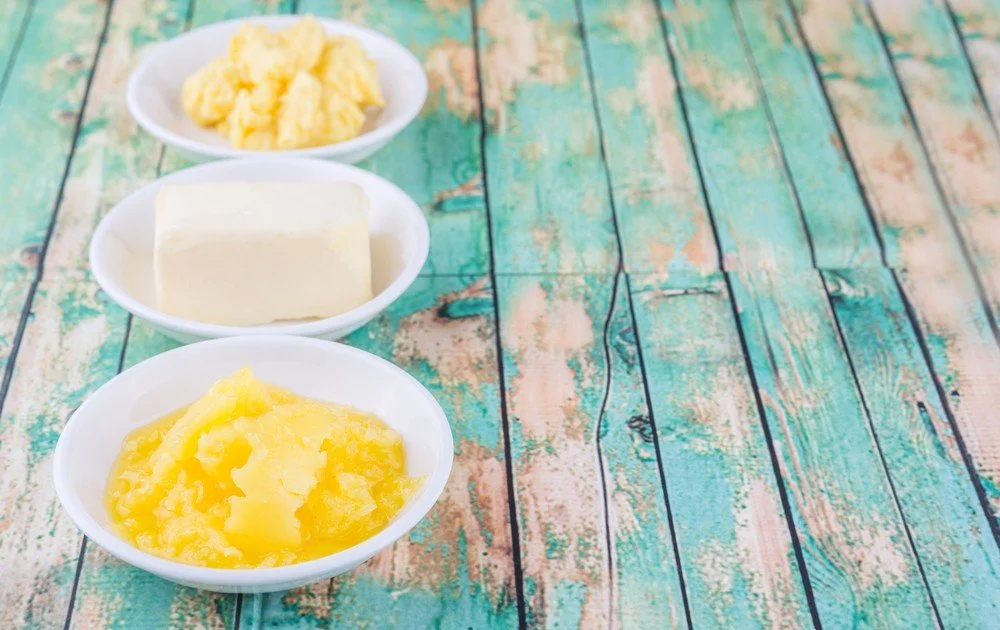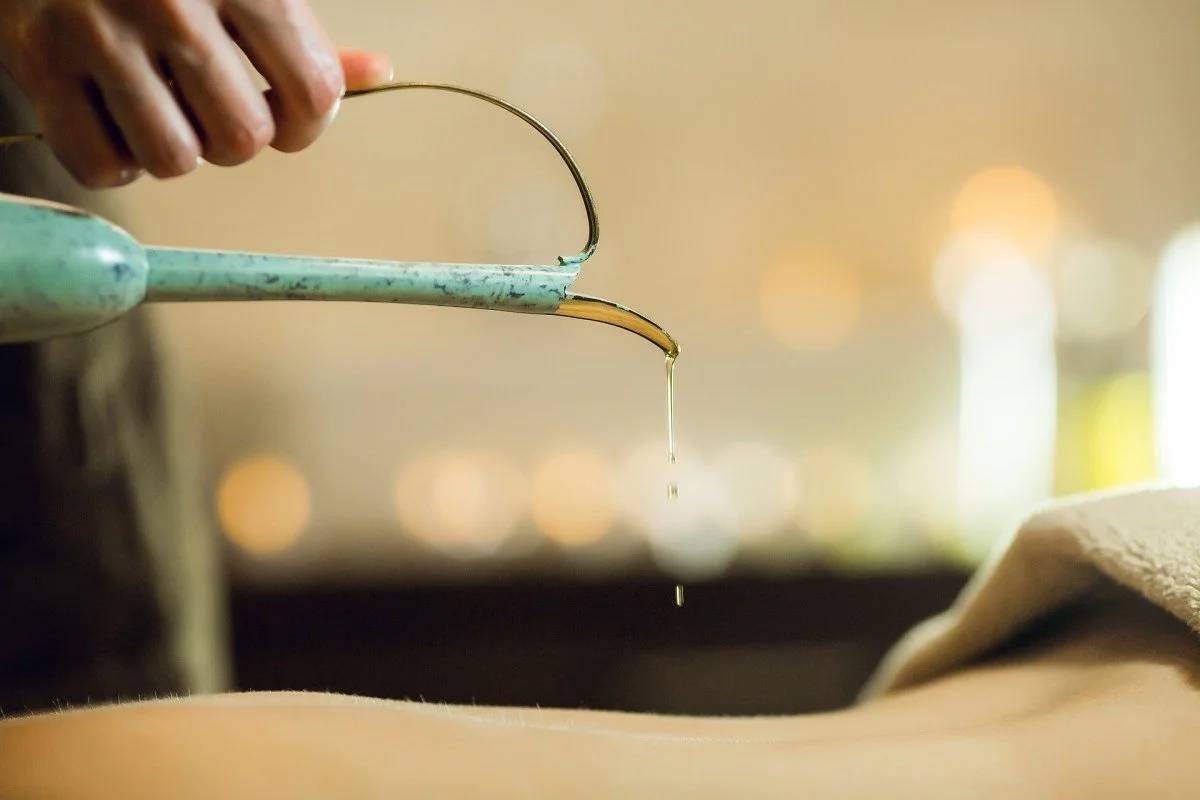Gut Health & Microbiome: Ayurveda & Modern Science with Prof Keith Wallace
This is a transcription from Mark's Ancient Wisdom from Modern Health Podcast. Original PODCAST Available Here (Scroll to Episode #46)
Mark Bunn: (MB)
Welcome to an absolutely fascinating chat about gut health with one of the world's leading researchers and scientists on this whole area; Dr. Keith Wallace. If you're like me, 30 years ago you probably never spoke the term “gut health”. Today, gut health is spoken about everywhere. Keith is one of the world's premier researchers and scientists in the area of physiology and consciousness. He was the first scientist to show a fourth state of human consciousness in his doctoral dissertation at UCLA.
After being the founding president of the Maharishi International University in Iowa, he's the chair and professor of the Department of Physiology and Health. He also supervises all the PhD programs in physiology at the University. For about the last 50 years, he has traveled the world speaking on all things Maharishi Ayurvedic science, consciousness, and what we're going to talk about a bit today; Ayurvedic medicine.
In addition, he's written and published many books. I remember the first book I ever read of Keith’s, almost 30 years ago, The Physiology of Consciousness; was one of the best books I've ever read. More recent books include Dharma Parenting, Total Brain Coaching, The Coherence Code, and what we're going to talk about today, his book; Gut Crisis.
Microbiome & Gut bacteria
That idea I touched on earlier was when you were a boy and when I was a boy growing up, we'd never heard of these terms: gut health, probiotics, sauerkraut or kefir. If someone had said the word “lactobacillus”, I would have thought it was an Eastern European soccer player. Today you can't go anywhere without someone being gluten free or dairy free, etc. What's your take on this? How have we gone so quickly, within 20 or 30 years, from almost never talking about it to now it being absolutely everywhere?
Keith Wallace: (KW)
Part of it is technology. These bacteria, friendly bacteria, that live in the gut; they’re not very easy to study. They usually live without any oxygen. So when you try to culture them, you can’t. It's very difficult. It's only in the last 10-20 years through gene sequencing technology; that we are able to really study them in depth. Then you need very sophisticated data analysis because it’s huge amounts of data. 30 trillion gut bacteria, 500 to 1000 species and many, many more subspecies.
It's funny, there were people way back when, who did promote yogurt. I remember growing up there was a famous Russian scientist, who said it would make you live longer. So people did echo what was there in the ancient wisdom, but then it just got lost completely. We treated bacteria as if they were bad, all of them, and we were scared of them. People would travel and get bad diarrhea, so they became scared of bacteria.
We started living in an ultra hygienic environment, which turns out to be not that good for us. We took a lot of antibiotics when we were kids, the doctors prescribed them excessively for anything; for a virus, which they do no good for. So we disrupted our microbiome in our gut. We did everything bad to it. Now we have figured out these kinds of bacteria are really good for us. They are at the source of so many aspects of our health and their disruption can cause disease.
It's a huge turn about even though in ancient health systems like Ayurveda, they've known for thousands of years. Nobody ever had this term “microbiome” and never really understood the notion. It is very unique, very special and is really transforming medicine right now.
MB:
You touched on this idea of ancient wisdom. We know in Ayurvedic medicine, from thousands of years ago, they spoke about the daily cycles called dinacharya and many aspects of modern science; we've known about for thousands of years. Can you put it in a context of these gut bacteria? I know Ayurvedic texts talk about things like krimis (general term for all pathogenic and nonpathogenic organisms), but did they have a detailed understanding of what we would consider microbiome now? Or is it more in general terms like agni (fire)?
KW:
I don't think so. When you look at the word krimi, it doesn't have the same impact. I think for many years we've been confused. The microbiome is helping us understand Ayurveda better. In Ayurveda they have this notion about the three doshas, vata, pitta and kapha. Three basic types and fundamental principles that organize the body.
Vata is located in the colon. It’s all over the body, but that’s its primary seat. Yet it controls all movement and transportation and regulates the nervous system. I was confused when I was studying Ayurveda. Why are they putting this thing in the colon? It turns out that's where the microbiome is and it turns out the microbiome has a huge effect. The gut brain axis is enormously important for the nervous system; it produces all the neuro peptides, it works through the vagas nerve. These bacteria have a huge impact on the nervous system. There are studies where you show people stressful movies, but if you give them a certain probiotic before it their brain doesn't light up as much in these emotional areas.
We're suddenly learning things about Ayurveda that were a little bit curious before. That I was confused about. There are studies which show, for example, that if you’re vata, pitta or kapha, that correlates with the expression of certain genes. There are certain physiological characteristics if you’re kapha type, you tend to have lipid factors and a higher cholesterol situation. Now there are even studies which show that if you're vata, pitta or kapha, you have a different microbiome. So this is kind of cool, we’re getting deeper into it.
We're learning that the microbiome has its own circadian rhythm. It also has seasonal rhythms. It's all fitting together beautifully and reinforces everything we learn in ancient wisdom. Hippocrates, the father of modern medicine, says all disease begins in the gut, but what modern-day doctor ever believed that? The single most important factor for everyday life is what you eat, which changes your microbiome.
You switch from plant based to animal based, your whole microbiome starts to switch. We know when the microbiome is upset, the gut lining gets inflamed and we have severe problems with digestion. The whole idea of leaky gut syndrome, nobody knew what that is, now we have a pretty good idea. It correlates perfectly with the Ayurvedic concept, that if you get undigested food into the bloodstream, what they call ama; you need agni, which is the fire of digestion to get rid of the ama. If you don't get rid of it, and it gets into the bloodstream; it is the single most important cause of disease in Ayurveda. Digestion is critical and food is medicine. Now we know what that all means, from a modern health perspective.
MB:
Just to backtrack slightly, you touched on the gut brain axis - I think people are fascinated with this idea of gut health and often associate it with physical symptoms; bloating or heaviness after a meal. What's fascinating of course, is the connection to the mind and mental health we hear so much about today. Could you give us some insight into this connection with gut health and emotional, mental symptoms, not just physical?
Gut Health and the Nervous System
KW:
We recognize now that the gut bacteria have many ways of influencing the nervous system. The vagas nerve, as I mentioned, is the biggest nerve in the body. The gut bacteria can change it and it can make changes in the brain. That's the simplest way, but the most interesting way are the chemicals. In the gut we produce neuropeptides and neurotransmitters. These are the chemicals that in our brain, regulate all our thoughts and emotions. If we're depressed, if we're anxious; it’s all based on biochemistry. Usually these two are separated by the blood brain barrier, so things can't always go from the bloodstream into the brain.
So many of those neurotransmitters are produced right in the brain, then a whole bunch of are produced in the gut. How they interact is an area now, of interest. There are certain “things” that are produced in the gut that can change the blood brain barrier, so “things” from the body can get into the brain.90% of serotonin in your body is produced in the gut, it affects everything in the body. Dopamine, another very important one for addiction, 50% produced in the gut. The gut is a big endocrine system. It's a big nervous system and it's producing neurotransmitters. It's producing hormones. Then the gut bacteria themselves produce a wide variety of chemicals, thousands of chemicals separate from neurotransmitters and neuropeptides these all go into the bloodstream; chemicals like butyric acid.
Some can get past the blood brain barrier, so it's bi-directional communication. The gut communicates with the brain. When we get stressed we produce cortisol. Cortisol shuts down the immune system, the brain will naturally shut down the digestive system in a stress response. So the brain has a huge impact on our digestion, too, it goes both ways.
Leaky Gut Syndrome />
Leaky gut syndrome, nobody knew what that was. This one guy, Alessio Fasano, at Massachusetts General Hospital, and Harvard works with children with celiac. He’s head of gastroenterology and pediatrics there. He uncovered what happens (in leaky gut syndrome).
Look at something like celiac where you can't digest gluten, gluten causes real problems for you. One component of gluten is something called gliadin.
Gliadin is a protein that's very hard to digest. In celiac patients they have certain genes turned on, that others don't have turned on. Gliadin goes right to the receptors on all the cells that line our gut, and it produces something called zonulin. Zonulin goes to the protein that binds each cell together in the gut, and loosens it; so now we have a real, concrete model for what leaky gut is. It’s not an abstract concept; in celiac patients, we can see it.
Those same mechanisms operate in anybody, in many different ways. The gut is 80% of our nervous system, it’s an important barrier to keep out unwanted “things”. When you loosen up that barrier (in the cells of the gut) the immune system goes nuts. It does not like it. A lot of people now think that autoimmune diseases may be caused by this leaky gut. You start to create a chain reaction.
The immune cells get so aggravated by this leakiness and constantly fighting; that they set off a chain reaction throughout your body. They don't know why in some cases, it goes to the pancreas, destroys the beta cells and you get diabetes one or why some get rheumatoid arthritis or lupus.
There are a lot of good, scientific papers out there saying we've been looking at the whole thing wrong. Digestion and the gut are the key to everything. You have good health there and you have a chance of really maintaining a long healthy life.
Gut Health and Immunity
MB:
We want to start getting into the practical ways we can improve our gut health, but I’d like to finish off with the immune system. We’re in the middle of, hopefully towards the end of, CoVID-19, and you've touched on immune system indirectly. Would you expand on the importance of gut and how the bacteria have played such a role in strengthening our immune system?
KW:
We know that if a child is born in a cesarean birth as opposed to a natural birth; instead of the first bacteria going in their gut being from the mother’s birth canal, now it’s from the hospital air, which is not good bacteria in general. If those first bacteria that seed the gut, the beginning of your microbiome in the gut, if they're natural, and they come from the mom during birth; that’s good. Then it all develops in a very nice way. If you have a cesarean birth, there’s a much larger chance you're going to have asthma, allergies, etc. Because you're not educating the immune cells.
The gut bacteria have this role and they develop in our youth; kids eating dirt, they're eating anything, that’s actually good, because that's educating the immune system. Now we have a stronger immunity as we grow older. If you have this abnormal birth or this abnormal kind of childhood, it (the immune system) loses strength. CoVID-19 is really interesting because we also have a lung microbiome. It used to be thought the lung was sterile.
Everybody knew there could be bacteria in the upper respiratory system, but they thought at least the lower lung was sterile. Now they know that's not true at all. It's got its own microbiome with its own bacteria. they also know that the gut bacteria can “talk” to the lung bacteria. A lot of patients with CoVID-19 are found to have gut problems, too. It’s happening everywhere that we're realizing the strength of our immune system, prevention of autoimmune diseases; all of these very much dependent on diet and digestion.
How to Improve Gut Health
MB:
What Ayurveda has been saying for thousands of years! Let’s dive into the practical remedies and I really love this idea of starting with hygiene. You spoke about how when we're kids we played in the dirt, but what can we do today? As adults we aren't going to play in the dirt, but in our homes we tend to want to sanitize everything. What’s the best way to go about getting this exposure to “dirt”?
KW:
Well, natural birth is best. If you need a cesarean of course you have to do that, but now they're finding creative ways of exposing even a child having a cesarean birth, to the bacteria from the mother’s birth canal. That's first and then breastfeeding, of course, turns out to be really good. You would think cesarean birth would be a very rare thing. In some countries, like China, it’s 30 - 50%. In some hospitals in Brazil or Italy, they schedule (cesarean births), it’s like, 80%. We've just gone way off track.
Being more natural in those early stages is really important. Of course diet is very important, and the diets in many Western countries are terrible, especially for young kids; all the canned baby foods, etc. The microbiome takes its time to build up and it changes as you grow. It goes through different stages, but diet and antibiotics are probably the two most important factors.
Probiotics is a really fascinating issue, and probiotics for kids is an even more controversial issue. Everybody does believe, particularly as you grow older, that natural probiotics are very good it was in Ayurveda in many traditions, it’s an integral part. Probiotics can help people; there are studies that show it really can help people.
It's also funny, say somebody had an infection and you had to give them antibiotics. They took one group and gave them probiotics and then the other group they didn’t. A lot of people got better with probiotics, but a certain part of the group that got probiotics, actually, certain types of bacteria didn't grow back.
Because when you give a probiotic, there's a kind of competition. It’s amazing they work at all. It's like sending Girl Scouts into the riots of Chicago. These bacteria have huge ecologies that are very sophisticated and they protect their territory. It's a very strong environment. It's amazing that probiotics do anything at all because you're taking them in and some are getting destroyed by the stomach acid.
Tips for a Healthy Gut Microbiome
They have to compete with all the others, but it does turn out that natural probiotics are good. So these are some of the simple things that people can do. Stress is a big factor. If you're stressed, you get a lot of problems in the digestive system. That's why all the things in lifestyle; have regular sleep, having good exercise, these all affect the microbiome. When you eat at night affects the microbiome. If you eat late at night that can disrupt the microbiome.
In Ayurveda they have all these recommendations: eat your main meal at lunch, don't eat too much at night, all the things that people tend to do in our Western culture. Ayurveda is filled with these preventative tips that now you can see, from studying the microbiome, are really valuable. The kind of food you eat is very important, learning to meditate (to reduce stress). I do Transcendental Meditation, you do Transcendental Meditation it’s a good thing; that’s really helping the gut.
You need to give the gut a chance to rest and repair itself. One of the books I wrote is called: The Rest and Repair Diet. It's a simple elimination diet. You don't have sugar, just for three weeks, not any longer. You don't have any sugar, you don't have any gluten, and you cut out dairy, and you don't do it forever; just three weeks and then you reintroduce them, and see the effect.
It's an old fashioned diet, really. I do have some very Ayurvedic diets within that book, that you can do, which are very purifying, very healthy; detoxifying. The main idea of all these things is to give the gut a chance to repair itself. The body's inner intelligence is great you meditate when you exercise that enlivens us inner intelligence, and that helps the body heal itself if you have proper rest. That's really good. And part of rest is maybe not overloading with certain types of foods that are aggravating the system.
So there's a lot of good tips from Ayurveda that range from proper food for each different type; vata, pitta, kapha, to simple daily recommendations like get up in the morning and have a glass of water. Eat your main meal at noon. After each meal make sure you sit for five minutes. Don’t fill yourself up with food. There’s this beautiful notion: half full with food, a quarter with liquid and a quarter empty space.
What about the latest fads?
MB:
You touched on this earlier with Ayurveda and body types. Could you touch on briefly these fads that come out. Sauerkraut or kefir, great for the gut and contain natural probiotics. Ayurveda, of course, understands that individual body types and these things such as keifer can be very sour and fermented foods aggravate pitta. So just because something is supposedly good for the gut doesn't necessarily mean it's good for all body types.
KW:
In all my books, especially the Rest and Repair Diet, I the key to everything is self referral. You have to try it and see how it affects you. The Ayurveda knowledge will help you, it guides you. They have six tastes and certain tastes are good for some types and certain tastes aren't good for other types. Sour wouldn't be good for a pitta, but might be good for vata. In the end you have to be the ultimate tester of what’s good for you. As wonderful as Ayurveda is we live in a ridiculous world where we’ve confused so many things, our biological clocks are all messed up. We don't know what's in every food even when it says organic. Does it have any good minerals in it? Maybe they're growing it in terrible soil. It's organic, but it's not as good as we hoped.
I think it's really important to follow all those things. Organic is fantastic, non GMO, fantastic. All of these things are good, but we're so different, each of us; the only way to know what's really good for you is to test it on yourself. That's why I like this elimination diet. You eliminate (it ) from your diet for a certain period. Then you reintroduce it and you get a shock. You take away sugar for three weeks, and then you start having sugar again, you can't believe how much sugar you've been taking. You can quickly get back to eating sugar.
These habits are deep and they're powerful. You need to have a little reflection, a little self-referral where you use the Ayurveda knowledge as a guideline, but then you don't get so rigid about it.
This (Ayurveda) was created thousands of years ago. We're in a different world. You find what really works for you and what doesn't work. They (Ayurveda) have a wonderful phrase called “oka satmya". Which means this food may not be good for you, in fact it probably isn't that good for you, but because you your grandmother gave it to you when you were sick; you should actually take it because it psychologically helps you. It gives you comfort, makes you feel good. So even in Ayurveda there are exceptions. There are all kinds of interesting things in Ayurveda if you get sick.
They will recommend bone broth. It’s a vegetarian culture, but they see value in things if you're in an extreme situation. You have to go more deeply, you have to try things out, and you have to recognize that we do live in a different world. The same bacteria that exists now were probably very different. We have to recognize there are going to be some truths that are always there, but we never were exposed to these toxins 2000 years ago. We've introduced horrible toxins, so our body is under much more pressure than it's ever been.
On one of my websites I have a recommendation for the best probiotics, but I do that from criteria that science has created. In the end, I have to say those are reasonable recommendations, but it's really up to you. Somebody can go, in the United States, to Walmart and buy the cheapest probiotic and find incredible results while somebody else buys this incredibly expensive refrigerated probiotic.
It's the same with kefir. Some people get huge value out of all these things, and some people they wreck. You have to not go by any book but go by yourself. You’re the ultimate test of everything.
MB:
I think that's a beautiful way to conclude the main discussion. As you said, self-referral and the topic is gut health. We can't overemphasize this ability to just tune in and listen to our own bodies.
* Check out Keith's Great Gut Crisis Book here
ARTICLE WRITTEN BY MARK BUNN
Mark Bunn is the Founder of Dharmic Living and author of the three-time best-selling ‘Ancient Wisdom for Modern Health‘.
Featured Articles
Topics
- Alcohol 1
- Allergies 1
- AntiInflammatory 2
- Arthritis 1
- Asthma 1
- Atkins 1
- Autumn 1
- Ayurveda 22
- Ayurvedic Medicine 12
- Ayurvedic Science 2
- Bad Breath 1
- Beer 1
- Blood Sugar 1
- Bob Roth 1
- Body Odour 1
- Breakfast 2
- Breathing 1
- Business 2
- Butter 1
- Caffeine 1
- Cancer 6
- Carbohydrates 2
- Cataracts 1
- Charcoal Water 1
- Cholesterol 3
- Coffee 1
- Cold & Flu 1
- Cooking 1
- DR JR Raju 2
- Daily Cycles 2
- Dehydration 2
- Dental 3
- Detox Drinks 1
- Diabetes 1
- Diet & Nutrition 44
- Dieting 2
- Digestion 9
- Direction 1
- Disease 1
- EMF 1
- Earthing 2
- Eastern Medicine 1
- Eating 1
- Eating Out 1
- Exercise 9
- Eye Health 1
- Fish Oil 1
- Flaxseed 1
- Food Quality 2
- Forest Bathing 1




